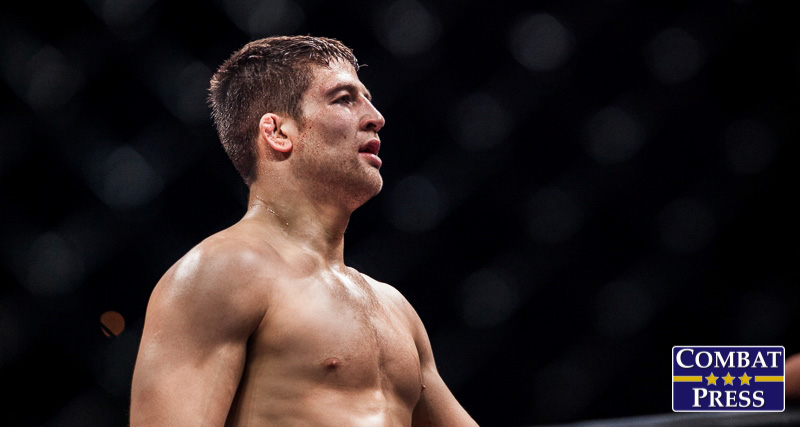As a combat sports athlete juggling your studies, you know the drill: rigorous training sessions, endless hours of study, and the constant battle to keep both on track. It’s like fighting on two fronts – one in the ring and the other in the classroom.
This article is your cornerman, offering practical tips to help you stay in top shape while acing your studies. We’ll guide you through managing your time, keeping fit, eating right, and balancing your mental health with your academic and athletic goals.
Ready? Let’s dive in and find that winning strategy for both your athletic and academic pursuits.
Effective Time Management
Time management is your secret weapon in balancing the demands of combat sports and academics. It’s like having a game plan for each day. In the world of professional sports, unpredictability is a given. There are times when training might eat into your study hours. In such scenarios, having access to a write my essay services can be a lifesaver for your academic commitments.
Here are a few key time management techniques:
- Prioritize Your Tasks: Identify what’s urgent and important. Training for the next competition? Exam next week? Tackle these first.
- Create a Structured Schedule: Map out your week. Allocate specific times for training, studying, and rest.
- Set Realistic Goals: Aim for achievable daily objectives, whether it’s a chapter to read or a new technique to master.
Effective time management isn’t just about finding time; it’s about making the most of the time you have. With these strategies, you’ll be well on your way to excelling in both your sport and studies.
Fitness Routines for Busy Schedules
Keeping fit with a packed schedule can seem daunting, but it’s all about smart planning. Short, high-intensity workouts are your best friend here. They pack a punch in minimal time, boosting your fitness without eating up your day.
Try squeezing in a 20-minute HIIT (High-Intensity Interval Training) session. This could be a mix of sprints, burpees, and other intense exercises. It’s a quick way to maintain stamina and strength, vital for combat sports.
Also, weave physical activities into your daily routine. Take the stairs instead of the elevator, or bike to campus. These small changes add up, keeping you in shape and ready for action, both in the ring and in the classroom.
Nutritional Guidance for Athletes
Nutrition is a crucial part of any athlete’s regimen, impacting both physical performance and mental sharpness. As a combat sports athlete, what you eat can significantly influence your energy levels, recovery speed, and overall health.
Consider these nutritional tips:
- Balance Your Macros: Ensure a healthy balance of proteins, carbs, and fats. Proteins are vital for muscle repair, carbs fuel your energy, and fats support overall health.
- Stay Hydrated: Adequate water intake is essential for peak performance.
- Opt for Whole Foods: Choose nutrient-dense whole foods over processed options for better health and energy.
- Monitor Your Intake Before Competitions: Tailor your diet in the days leading up to a competition for optimal performance.
Remember, good nutrition isn’t just about the right diet; it’s about eating smart for your specific athletic needs.
Balancing Training and Study Techniques
Balancing training and study can be tricky, but with the right strategies, you can ace both. Think of it as crafting a workout plan for your brain.
Integrate your study sessions with your training schedule. For example, review your notes right after a workout when your mind is still active. Taking breaks aligned with your training can help too; use these breaks for quick study sessions or revisions.
In times when your training demands more, and deadlines are tight, consider using resources like the best dissertation writing service for academic support. It’s a practical solution that can help you stay on track without compromising your training.
Active studying methods, like teaching the material to someone else or creating flashcards, can also be more effective than just reading. These techniques ensure that you’re making the most of your study time, just like you do with your training.
Stress Management and Mental Health
Mental health is as important as physical fitness, especially when balancing demanding training with academics. Managing stress is key to maintaining both mental clarity and peak athletic performance.
Firstly, ensure you get enough rest. Adequate sleep is crucial for recovery, both mentally and physically. Also, practice relaxation techniques like deep breathing, meditation, or yoga. These can help clear your mind, reduce stress levels, and improve focus.
Don’t underestimate the power of taking short, regular breaks during study sessions too. Just like in physical training, your brain needs time to recover. By prioritizing your mental health and managing stress effectively, you set yourself up for success in the ring and in your studies.
Conclusion
In conclusion, balancing combat sports training with academic studies hinges on effective time management, fitness routines adapted to busy schedules, smart nutritional choices, and integrating study sessions with training effectively. Don’t forget the importance of stress management and prioritizing mental health.
By mastering these aspects, you not only enhance your athletic performance but also boost your academic success. This balance is key to your overall personal and academic growth, setting you up for success in all arenas of life. Stay focused, stay disciplined, and watch how this equilibrium can transform your potential.

